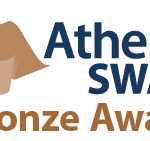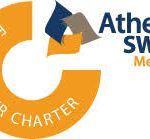Central to the Athena SWAN approach to addressing gender inequality in UK universities are two facts:
- Vice-Chancellors love/need prizes!
- Evidence is essential to convince rational people when changes need to be made.
Therefore Athena SWAN offers a series of prizes, based on submissions that acknowledge and attempt to rectify gender inequality. The submissions are data-centred. This is absolutely critical – only evidence can convince, only evidence can direct the Action Plan. Without these data, policies and procedures can be changed (or may have been in place for ages) without understanding the gender implications. The Action Plan targets (set by the data analysis) must be evidence-based as well as SMART – realistic and potentially achievable. Comparative data are tremendously important – there might be only 10% females on the staff of a unit, but if the UK comparison is 2%, then that’s great! Practices that we take for granted, such as female representatives on interview panels, are an outrageous novelty elsewhere! We must have support from leadership – each leader must all the time have gender equality and fairness in mind as a parallel goal to bringing in more money, research achievements, etc. Everybody needs to understand why we doing this – reducing gender inequalities benefits everyone.
| Title | Date | Time | Location |
| Using Athena SWAN to create an inclusive work and study environment | Monday 8th June 2015 | 14:00 – 15:00 | Talbot Campus |
To book your place on this workshop, please email Organisational Development
Speaker’s Biography
Christine Maggs started as Dean of Science and Technology at Bournemouth University after five years as Head of School of Biological Sciences at Queen’s University Belfast. At QUB she led the School’s successful 2009 submission for a Silver SWAN Athena award, and was closely involved in the successful Gold award application. Her research interests include the systematics and ecology of seaweeds, and the conservation and exploitation of marine resources. She was appointed as a Member of the Royal Irish Academy in 2013 and in 2014 received the Award of Excellence of the Phycological Society of America.
 Athena SWAN – latest news and information
Athena SWAN – latest news and information Athena SWAN – February Newsletter
Athena SWAN – February Newsletter










 Missing Persons Indicator Project Recruitment
Missing Persons Indicator Project Recruitment Celebrating our Research: Postgraduate Research Showcase 2026
Celebrating our Research: Postgraduate Research Showcase 2026 Nursing Research REF Impact in Nepal
Nursing Research REF Impact in Nepal Fourth INRC Symposium: From Clinical Applications to Neuro-Inspired Computation
Fourth INRC Symposium: From Clinical Applications to Neuro-Inspired Computation ESRC Festival of Social Science 2025 – Reflecting back and looking ahead to 2026
ESRC Festival of Social Science 2025 – Reflecting back and looking ahead to 2026 3C Event: Research Culture, Community & Cookies – Tuesday 13 January 10-11am
3C Event: Research Culture, Community & Cookies – Tuesday 13 January 10-11am ECR Funding Open Call: Research Culture & Community Grant – Application Deadline Friday 12 December
ECR Funding Open Call: Research Culture & Community Grant – Application Deadline Friday 12 December MSCA Postdoctoral Fellowships 2025 Call
MSCA Postdoctoral Fellowships 2025 Call ERC Advanced Grant 2025 Webinar
ERC Advanced Grant 2025 Webinar Horizon Europe Work Programme 2025 Published
Horizon Europe Work Programme 2025 Published Update on UKRO services
Update on UKRO services European research project exploring use of ‘virtual twins’ to better manage metabolic associated fatty liver disease
European research project exploring use of ‘virtual twins’ to better manage metabolic associated fatty liver disease